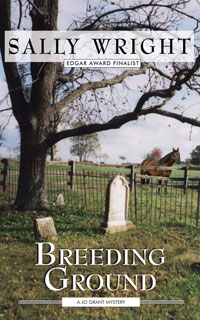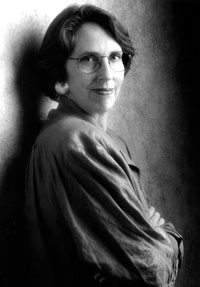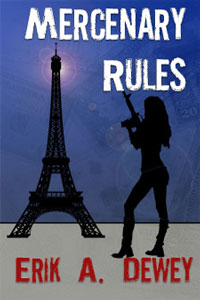
Every Made It Moment tells a story. The story of a book, of an industry that’s in continual flux, and ultimately of a writer. Some parts of Sally Wright’s story will be familiar to us–the near-successes, the hitches, the times it seems like it’s t-h-i-s close (but isn’t), and what happens after the happily-ever-after. But there are some unexpected elements in here as well, including the bucked death sentence. (As befits any good mystery). Read on to get a feel for what this business looked like a long time ago, and what an Edgar-nominated writer who has survived decided to do.

The Elusiveness of Made-It-Moments
Well, the first almost-made-it-moment was when an editor promised me a contract within a week for the first Ben Reese mystery, Publish And Perish. I waited four, and phoned, and his secretary told me to call him at home. He said he was on another call and would phone me back as soon as he got off. I waited four hours, and called again. He said he was on another call, but would call me back immediately.
He didn’t; his secretary did, and said he’d asked her to tell me that “he’d have to pass on the book” (which brought the word “wimp” rapidly to mind, and made me assume he hadn’t gotten Publish through his publishing committee).
My next semi-made-it-moment felt like a real one because I actually GOT a contract, and a modest advance, and spent a month doing revisions for the editor – before she told my then-agent that the publisher had decided to “get out of fiction altogether.”
Then, another editor, Rod Morris, at another house, who’d liked Publish And Perish but had had it turned down by his publishing committee, heard the book was available again, and asked my agent to resubmit. The former committee members were now gone, and Rod ended-up offering me a three book deal.
He was a wonderful editor whom I loved working with, and I felt incredible relief that I wasn’t going to spend the rest of my life unpublished. I’d started my first novel seventeen years before (which, along with a second, and a work of non-fiction, still haven’t been published), and seeing a book in print made me feel as though I wasn’t just a self-deluded fool.
When I sent a trade paper copy of Publish to a former-editor-of-a-writer-friend to ask marketing advice, she sent it to Joe Blades at Ballantine without mentioning it to me. He was known in NY as “Mr. Mystery” then, and two days later, he, much to my amazement, bought the mass market rights for all three books.
When Pursuit And Persuasion, the third Ben Reese mystery, had been out a few months (and I’d spent every cent of my advance paying a NY PR firm to get me reviews), I got home from the horse barn where of a friend of mine kept Max (the one-eyed horse in Watches Of The Night) for me, and saw the light blinking on my answering machine. I was freezing, filthy and covered with horse hair, and our only good rug was between me and the machine, but I walked over and pushed the play button, expecting it to be one of our post-college kids.
Doris Ann Norris, who calls herself the “thousand year old librarian” (and appears to have hung-out with every mystery writer in the last fifty years), had left me a message. “Congratulations! I just heard that Pursuit And Persuasion’s been nominated for an Edgar Alan Poe Award by Mystery Writers of America!”
MWA called later and confirmed, but hearing Doris Ann’s message made my heart stick in my throat. That was the moment for me … since I’d first been published … since Ballantine bought the books … since Marilyn Stasio at the NY Times Review of Books had favorably reviewed Publish and Perish (my first book! of all things) as well as Pursuit And Persuasion.
And yet, the path wasn’t straight from there, even after the fourth Ben Reese came out. Editors – who think your fifth book’s the best, and intend to put real money behind you for the first time – get thwarted by company presidents and suddenly retire. Other publishers don’t want a new book when they don’t own the series backlist … and you end-up scrambling again, trying to find a publisher for the next two books.
This is an oft told tale. Which makes me ask, “What do we mean by ‘made it?’” I’m very grateful that I was published by the editors who published my six Ben Reese novels. I’m extremely glad I was nominated for an Edgar. But don’t we always want the next thing – the one we haven’t got?
I’ve been told three times in the last two years that I only have six months to live. I wrote a new mystery during that time about a woman architect in the early sixties in Kentucky horse country. It’s been the writing, the thinking, the work itself that’s mattered to me – much more than the hope of success, or the hope of praise, or any possible award. Breeding Ground – being able to work with the horse world in Lexington, to write about three family horse businesses fraught with family conflict, about caregiving, and discouragement too, and what can come out of suffering – actually being here to publish it myself, and begin to plan the next book – that’s what’s meant the most.
When I got discouraged (which I did fairly often) in the seventeen years before I was published, my husband would say, “A writer is someone who writes.” It’s getting to do the work, to write something that I think is worth writing about, that – excluding my faith and my family – is the gift I’m most grateful for every day I’m given.
Sally Wright is the author of six Ben Reese mysteries: Publish And Perish, Pride And Predator, Pursuit And Persuasion (a Mystery Writers of America Edgar Allan Poe Award Finalist in 2001), Out Of The Ruins, Watches Of The Night (published in June 2008) and Code Of Silence, a prequel to the series (published in December 2008).
Wright was born obsessed with books, and started pecking-out florid adventure stories with obvious endings by the time she turned seven. She wrote and performed music in high school and college, earned a degree in oral interpretation of literature at Northwestern University, and then completed graduate work at the University of Washington. She published many biographical articles, including pieces on Malcolm Muggeridge and Nikolai Tolstoy, Leo’s grandnephew, before she wrote her Ben Reese books.
Reviewers compare Wright’s work to that of Agatha Christie, Dorothy L. Sayers, Josephine Tey, Margery Allingham, and Ngaio Marsh. Wright herself says that her literary influences range from all of those to Tolstoy and Jane Austen, from P.D. James to Dick Francis.








